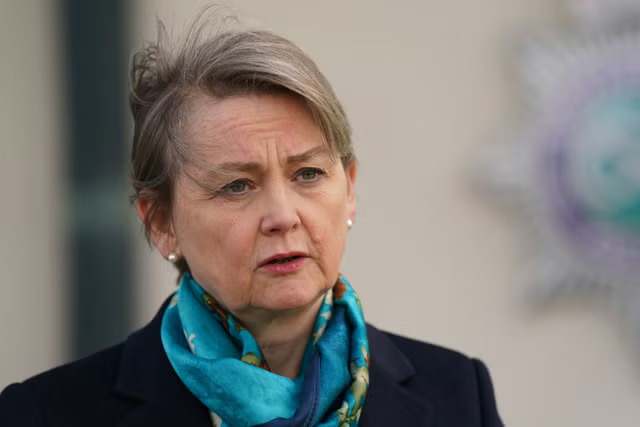Public confidence in Prime Minister Keir Starmer’s ability to manage migration is slipping sharply, according to fresh polling that exposes widespread discontent with how the government is handling the asylum hotel system.
The findings, conducted by YouGov, showed that 71 percent of respondents believe the prime minister is managing the issue poorly. Alarmingly for Labour, this included 56 percent of the party’s own voters, underscoring how divisive the policy has become within the government’s support base.
The poll results coincided with the government’s unveiling of reforms aimed at overhauling the asylum process. Officials confirmed that legal procedures will be streamlined in an attempt to fast-track applications and limit what they described as “over interpretation” of the European Convention of Human Rights.
The announcement came on the heels of a weekend marked by widespread demonstrations. Under the banner “Abolish Asylum System”, protesters gathered in towns and cities including Solihull, Dudley, Epping, Stevenage, London, Manchester, and Norwich. Several of the rallies descended into clashes with police, leading to arrests outside some asylum hotels.
Home Secretary Yvette Cooper outlined the government’s plan to introduce a fast-track appeals system designed to reduce the backlog overwhelming the courts. She insisted this measure would help Labour honour its commitment to end reliance on asylum hotels.
“We inherited an asylum system in complete chaos with a soaring backlog of asylum cases and a broken appeals system with thousands of people in the system for years on end. That is why we are taking practical steps to fix the foundations and restore control and order to the system.”
Yvette Cooper

Poll Finds Migration Tops National Concerns
The urgency of the issue was further highlighted by polling that ranked immigration and asylum above the economy and healthcare as the most pressing challenge facing the country. Nearly four in ten voters (37 percent) identified migration as their top concern, compared with 25 percent who named the economy and just 7 percent who cited the health service.
While Labour has reduced the backlog of initial asylum decisions, roughly 51,000 appeals remain pending, with cases taking over a year on average to resolve. The government’s new approach would give priority to applications involving foreign national offenders and those living in asylum accommodation. Professionally trained adjudicators, rather than judges, will preside over many of the cases to ease pressure on the justice system.
The reforms come as Nigel Farage prepares to unveil a mass deportation plan, which Reform believes will resonate strongly with voters. Farage has been vocal in criticizing the use of asylum hotels, aligning with other political figures such as Kemi Badenoch, who argue that the facilities should be closed immediately.
Labour has pledged to end their use by the next general election, but critics within the party are urging faster action. Opponents say the hotels are not only costly, draining billions from taxpayers, but also heightening tensions in local communities.
Protests Intensify As Communities Voice Frustration With Starmer’s Asylum Strategy
The tension was evident over the weekend, when police made several arrests during protests outside hotels housing asylum seekers. In Horley, Surrey, three arrests were reported, including two for breaches of the peace.

At Canary Wharf in east London, police formed protective lines outside the Britannia Hotel, a recent target of anti-migrant demonstrations. Security staff erected full-length barriers at the entrance as protesters unfurled union flags nearby.
The demonstrators represented a wide demographic. One adult wore a T-shirt referencing activist Tommy Robinson, while a schoolgirl in a Union Flag dress draped a St George’s flag around her shoulders. Another woman carried a homemade banner bearing the words: “Tower Hamlets Council house homeless Brits first.”
Other banners carried pointed messages, including one that declared: “Enough is enough, protect our women and girls.”
With public dissatisfaction mounting and protests spreading, the government’s ability to regain control of the asylum debate remains uncertain. As opposition parties sharpen their criticism and Reform seeks to harness frustration with migration policies, the political stakes for Starmer and his government are rising.
READ ALSO: Finance Ministry Vows to Sanction MMDAs’ over GIFMIS Non-Compliance























